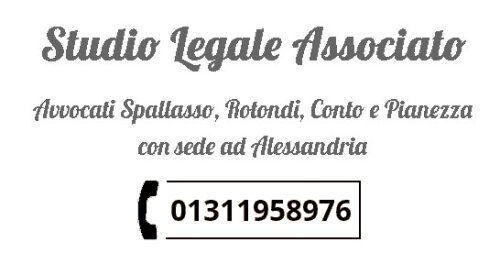Best Professional Malpractice Lawyers in Italy
Share your needs with us, get contacted by law firms.
Free. Takes 2 min.
Or refine your search by selecting a city:
List of the best lawyers in Italy
About Professional Malpractice Law in Italy
Professional malpractice in Italy refers to the failure of a professional to perform their duties to the standard expected, leading to harm or loss to their client. This area of law encompasses various professions, including medical practitioners, accountants, architects, and lawyers. Italian law holds professionals to high standards, and the Civil Code outlines their obligations to act with diligence, professionalism, and care. When these standards are not met, clients may have grounds to claim damages for malpractice.
Why You May Need a Lawyer
There are several situations where you might need a lawyer for professional malpractice in Italy. These include instances where a professional’s negligence has led to financial loss, personal injury, or damage to property. If you suspect an error in a service provided that significantly deviates from established standards, consulting a lawyer could help you understand your rights and the possibility of compensation. Legal assistance is crucial for navigating complex legal frameworks, collecting evidence, and effectively presenting your case.
Local Laws Overview
Italian malpractice law is rooted in the Civil Code, particularly articles 1176, 1218, 2043, and 2236. These provisions outline the responsibility of professionals to exercise diligence and how breach of this duty can lead to liability. Additionally, the concept of "colpa grave" (gross negligence) plays a crucial role in professional malpractice cases. It is essential for plaintiffs to demonstrate not only the occurrence of a negligent act but also a direct connection between the act and the harm suffered. Italy's legal system also considers contracts and agreements that define the scope of the professional relationship and duties.
Frequently Asked Questions
What constitutes professional malpractice in Italy?
Professional malpractice occurs when a professional fails to meet the standards required by their profession, resulting in harm to a client. This could involve errors, omissions, or negligence.
Which professionals can be sued for malpractice in Italy?
Various professionals, including doctors, lawyers, accountants, engineers, and architects, can be liable for malpractice if they fail to fulfill their professional obligations.
How do I prove a malpractice case in Italy?
To prove malpractice, you must show that the professional owed you a duty of care, breached that duty, and caused you harm as a result. Evidence and expert testimonies are often crucial in such cases.
What damages can be recovered in a malpractice lawsuit?
Damages can include compensation for financial loss, emotional distress, physical injury, and in some cases, punitive damages, depending on the severity of the negligence.
What is the statute of limitations for malpractice claims in Italy?
The statute of limitations varies by profession, but generally, it ranges from two to ten years from the date of the incident or from when the harm was discovered.
Can a malpractice case be settled out of court?
Yes, many malpractice cases are settled out of court to save time and costs. However, legal advice is vital to ensure a fair settlement.
How long does it take to resolve a malpractice lawsuit?
The duration of a malpractice case can vary significantly depending on the complexity and the need for expert evidence but generally ranges from a few months to several years.
What is the role of an expert witness in malpractice cases?
Expert witnesses provide specialized knowledge to clarify complex professional standards and demonstrate how the defendant deviated from these standards.
Is professional malpractice covered by insurance?
Most professionals have malpractice insurance that covers errors and omissions, but policy details vary. Policies often influence how claims are handled and settled.
What steps should I take if I suspect malpractice?
Document as much information as possible about the incident, obtain a copy of the professional contract, and seek legal advice to assess the strength of your case.
Additional Resources
For more information on professional malpractice, you may contact the following resources:
- The Italian Chamber of Commerce for guidance on business-related professional issues.
- The Order of Italian Lawyers (Consiglio Nazionale Forense) for legal assistance and finding a qualified lawyer.
- Consumer protection agencies that can offer support and advice on malpractice claims.
Next Steps
If you believe you have been the victim of professional malpractice, your first step should be to seek consultation with a seasoned attorney specializing in this field. Prepare all relevant documentation and evidence related to your case, and clearly outline your objectives and expectations. Taking prompt action helps preserve your legal rights, as time limits or “prescription periods” may apply.
Lawzana helps you find the best lawyers and law firms in Italy through a curated and pre-screened list of qualified legal professionals. Our platform offers rankings and detailed profiles of attorneys and law firms, allowing you to compare based on practice areas, including Professional Malpractice, experience, and client feedback.
Each profile includes a description of the firm's areas of practice, client reviews, team members and partners, year of establishment, spoken languages, office locations, contact information, social media presence, and any published articles or resources. Most firms on our platform speak English and are experienced in both local and international legal matters.
Get a quote from top-rated law firms in Italy — quickly, securely, and without unnecessary hassle.
Disclaimer:
The information provided on this page is for general informational purposes only and does not constitute legal advice. While we strive to ensure the accuracy and relevance of the content, legal information may change over time, and interpretations of the law can vary. You should always consult with a qualified legal professional for advice specific to your situation.
We disclaim all liability for actions taken or not taken based on the content of this page. If you believe any information is incorrect or outdated, please contact us, and we will review and update it where appropriate.
Browse professional malpractice law firms by city in Italy
Refine your search by selecting a city.

















